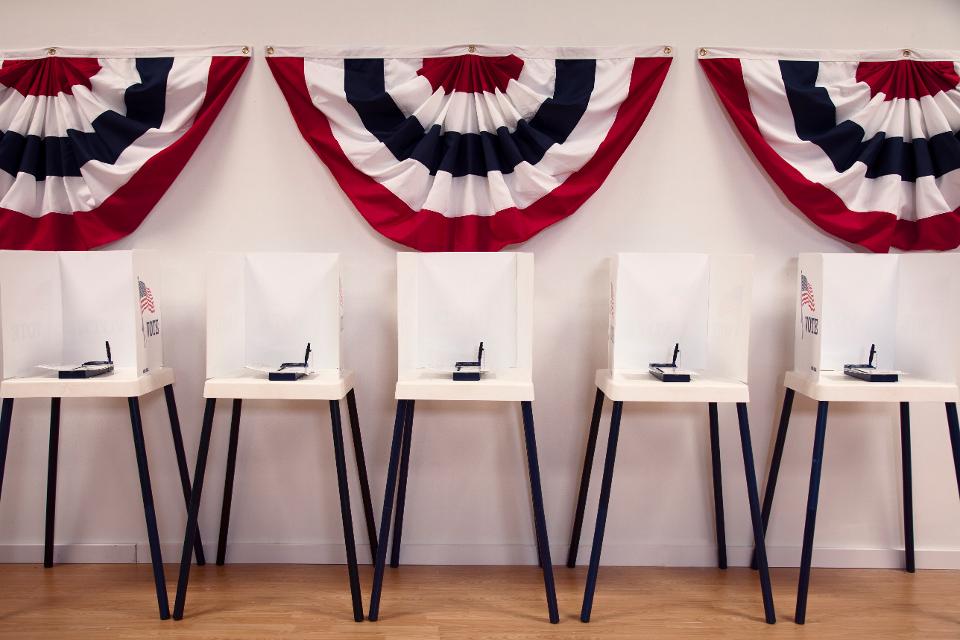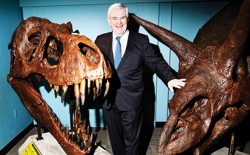
Empty Voting Booths
Getty
People do not vote for lots of reasons: dissatisfaction with government, apathy, and a belief that their vote doesn’t matter. A friend said her vote “doesn’t count much.” She even worked out the math in for the last Presidential election and said of the 136 million votes cast, her vote would have made up 0.0000007% of the vote and was thus virtually meaningless. I had a few reactions (such as “this is what happens when people sleep through math class”, and “it’s what we get for no longer requiring Civics courses is high school.”) This type of thinking is pervasive and as a consequence it virtually assures the tyranny of the few.
Our constitution protects the people from the tyranny of a single monarch’s rule by distributing control over a wider representation in the legislative branch. Our Bill of Rights was designed to preserve rights for all and protect us from the Tyranny of the Majority who could otherwise vote privilege for themselves and injustice for others. In our representative democratic republic, a supermajority is required to change the constitution and thus guard against capricious and selfish whims of a majority in power. But the fact is, when we do not vote it is a small minority which actually governs our country and exerts control over the vast majority.
Of all citizens eligible, approximately 24% are not registered to vote[1], and on election day, turn out of eligible voters varies from less than 10% (in local elections) to 60% in Presidential election years.[2] This means that in the past 100 years the category of “Did Not Vote” won every single Presidential election. A numerical minority determined the election results.
The numbers needed to win are even smaller in a primary election where two or more candidates vie for their party nomination. One could win with only tiny fraction of the votes and go on to win an election in a district with a strong party majority. Such was the case in 2018 when political upstart Alexandria Ocasio-Cortez beat powerful incumbent Congressman Joe Crowley (D-NY) 57% to 42%, however, only 13 percent of those eligible voted.[3] Regardless of where you are on the political spectrum, her win was created by the votes of a super-minority.
This year US Representative Elliot Engel, a ten-term incumbent, chair of the foreign affairs committee, member of the powerful Energy and Commerce Committee and buoyed by endorsements of national and local political leaders lost in his primary to a more liberal middle school principle and political newcomer Jamaal Bowman. Rep. Dan Lipinski (D-IL) nine term incumbent lost to marketing executive and political progressive Marie Newman in the Southside of Chicago district. Republican Rep. Steve King (R-IA) was defeated in his primary by State Senator Randy Feenstra, who campaign against Kings caustic style that GOP Chairwoman Ronna McDaniel described as “his white supremacist rhetoric is totally inconsistent with the Republican party.” Iowa’s statewide 24% voter turnout set a record for that primary.[4] IN all of these cases a minority of a minority determined the course of the primary.
In many states, only members of a party can vote in their primary. Many former Republicans and Democrats left their party to register as Independent out of disgust or disagreement with the party direction. By leaving their party they try to “make a statement.” In reality, moderate republicans and democrats actually cede power to more extreme progressives and conservatives, adding to the power base of a few. Translation: the majority opts out of the primary and the numerical minority grows in its power.
Power by the few crosses into local elections as well. Mayor De Blasio carried his NYC election in 2017 with 66% of the vote. Since only 21.7% of NYC’s registered voters bothered to vote in November, however, his self-declared “mandate” was won with only 14% of the voters in November. Although he won the primary election handily with 74% of the vote, he did so with an even smaller number of voters. Millions of dollars was spent on campaigning but a micro-minority determined the elections. The rest sat on their couches.
Many offer the excuse that they do not know the candidates in a primary and are too busy to learn. Nonsense. You can find out a lot from multiple sources on an internet search in the time it takes you to drink a cup of coffee.
Lack of involvement in primary voting self-selects voter ignorance. When you do not vote you will likely receive no primary candidate mail, phone calls or even a knock on your door. Candidates spend massive amounts of money to tell you about themselves. They want to find you. However, no candidate can afford to spend their limited funds reaching out to everyone when only a small minority votes in a primary. It’s the same advertising approach used by soft drink, clothing and auto companies: spend money wisely by targeting ads to only those likely to be your customers or voters.
This fall 22 state legislatures[5] are considered battlegrounds that can flip party control with the change in a handful of seats. When primary elections are determined by a small minority, those candidates may automatically become part of a legislative majority with November elections. Legislative majorities decide policy for better or worse. But it is the micro minority which determines the candidates in a primary. That is when you risk the tyranny of the few.
“Every nation gets the government it deserves,” observed Joseph de Maistre. It may be unjust and unfair, but that government is determined by those who stay home. If you ignore the primaries because you think your vote does not count, think again. The action of a few determines the course of your community, state and nation.
[1] https://www.pewtrusts.org/en/research-and-analysis/issue-briefs/2017/06/why-are-millions-of-citizens-not-registered-to-vote
[2] https://ballotpedia.org/Voter_turnout_in_United_States_elections
[3] https://nypost.com/2018/06/28/most-voters-stayed-home-for-stunning-alexandria-ocasio-cortez-win/
[4] https://www.desmoinesregister.com/story/news/politics/2020/06/03/iowa-sets-new-primary-election-turnout-record-mail-ballots-surge/3131529001/
[5] https://ballotpedia.org/State_legislative_battleground_chambers,_2020


